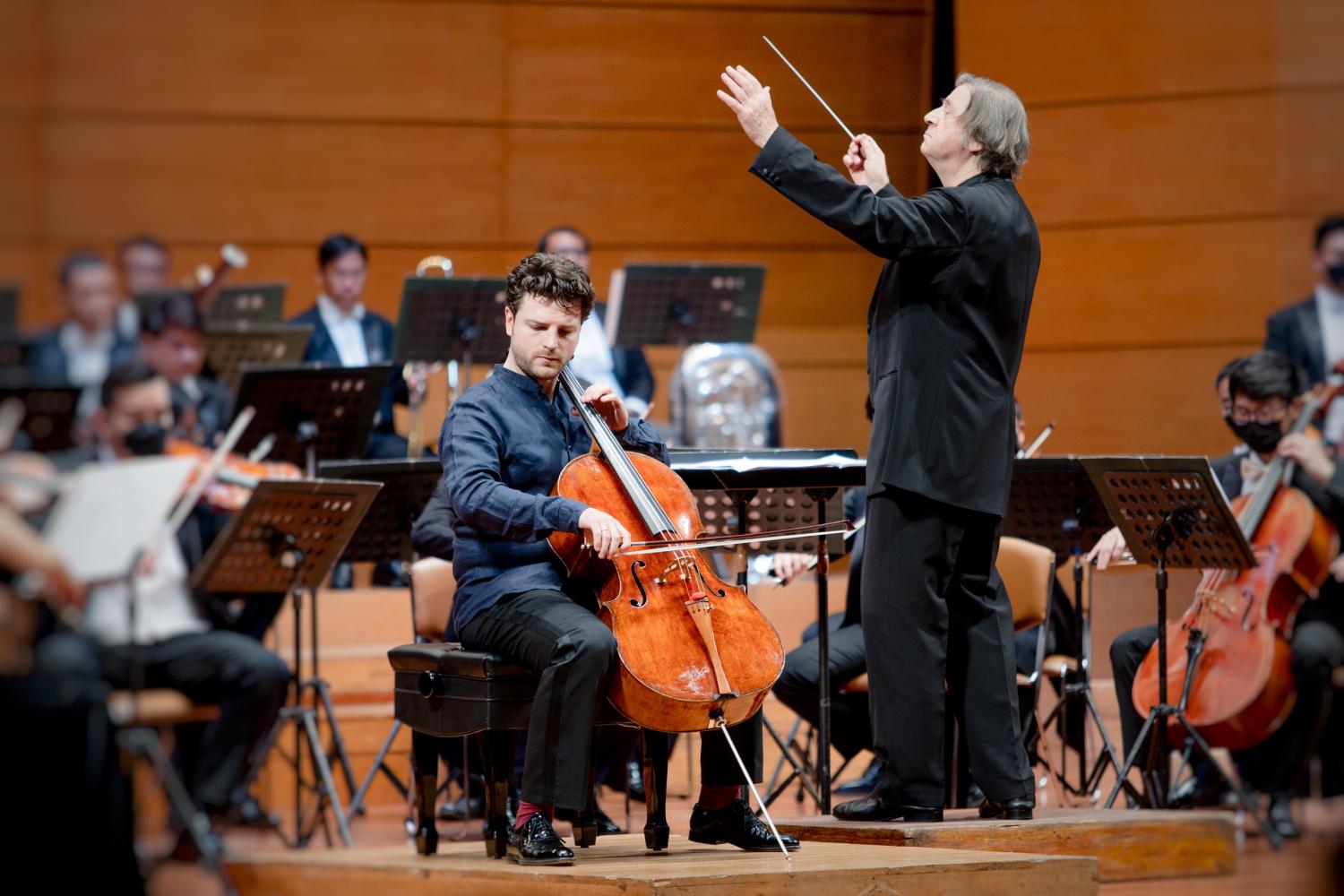
A noticeably large number of young music fans attended the most recent concert given by the Royal Bangkok Symphony Orchestra in the Thailand Cultural Centre last Friday, a very encouraging sight indeed.
The very future of classical concert-going depends absolutely on building the interest of younger generations, and more often than not the main attraction increasingly seems to be the appearance of a similarly youthful superstar instrumentalist. On this occasion it was the fresh-faced German-Spanish cellist Gabriel Schwabe who drew in the crowds, for a performance of that most elegiac of cello concertos -- that by Sir Edward Elgar in the melancholic tonality of E minor. He has been a fast-rising star of his instrument, earning critical comparisons to such greats of the past as Emanuel Feuermann.
Playing on an exquisite 1695 Cremona instrument by Guiseppe Guarnerius, this captivating soloist set out his stall with particularly resonant opening chords, projecting a luminously unforced tone uniquely associated with such historic Italian instruments. His effortlessly lush, warm and rounded sound easily filled the cavernous auditorium, while seasoned Austrian conductor Günter Neuhold for his part made every effort to keep the volume of the orchestral accompaniment as low as possible at all times. This is quite an achievement at certain fully-scored junctures of the Elgar, but very happily the solo cello was always clearly audible throughout this most engaging of interpretations.
The four movements unfold as a series of emotionally reflective episodes, by turns lyrical then passionate, playful and anguished. It takes a musically intelligent and responsive cellist of the utmost sensitivity to bring out and express fully all elements of Elgar's later-life masterpiece. Schwabe is clearly one such cello soloist, blessed with this innate but rare interpretative ability, while his masterful technique is no less developed -- quite superlative in fact. Having completely won over the crowd with his charisma and technical brilliance, in the foyer after the concert was an extremely lengthy queue for autographs from Schwabe -- a sure sign that such attractive classical soloists are truly gathering a loyal fan base into their creative orbit. These admiring patrons are of all ages of course, but as already observed the ever-increasing throng of adoring young patrons at RBSO concerts is particularly heart-warming. As if it ever needed reaffirming, the highest art and the greatest music will always find an appreciative audience.
The concert had begun with a well-blended RBSO string sound in Samuel Barber's famous Adagio For Strings, by far his most popular composition. Neuhold chose a good tempo, which allowed the wave-like motion of the melody to unwind with a persuasive phrasing. Over rich, sustained chords that seemed at once to urge the harmony forward while suspending it almost motionless, the melody rose to a shimmering climax, and then fell back to close as it began -- in exquisite silence.
If Schwabe, born in 1988, represented the exuberance of youth in this concert, then Neuhold was certainly the stabilising presence of seasoned experience. Born a whole four decades beforehand in Graz, Austria, he displayed all the hallmarks of a conductor in total command as he deftly controlled all sections of the RBSO and moulded them into a cohesive whole in Leoš Janácek's wonderful but challenging Lachian Dances. He managed to achieve a texture with something of the transparency of chamber music through the six compact dance movements, all based on folk tunes from the composer's Eastern Czeck home.
The final piece in this extremely polished concert was Zoltán Kodály's Dances Of Galánta, in which the Hungarian composer shows off the woodwind in virtuoso mode. A notable clarinet solo by Yos Vaneesorn was atmospheric and dynamic, whilst each separate dance was marked by a strong rhythmic vitality. Galánta was Kodály's boyhood home, and he often heard the gypsies there playing the same music their forefathers had passed on to them. Within the rather more formal context of orchestral music on the large stage, the Royal Bangkok Symphony Orchestra did itself proud in bringing the subtleties of this specifically regional, powerfully ethnic music to life.







